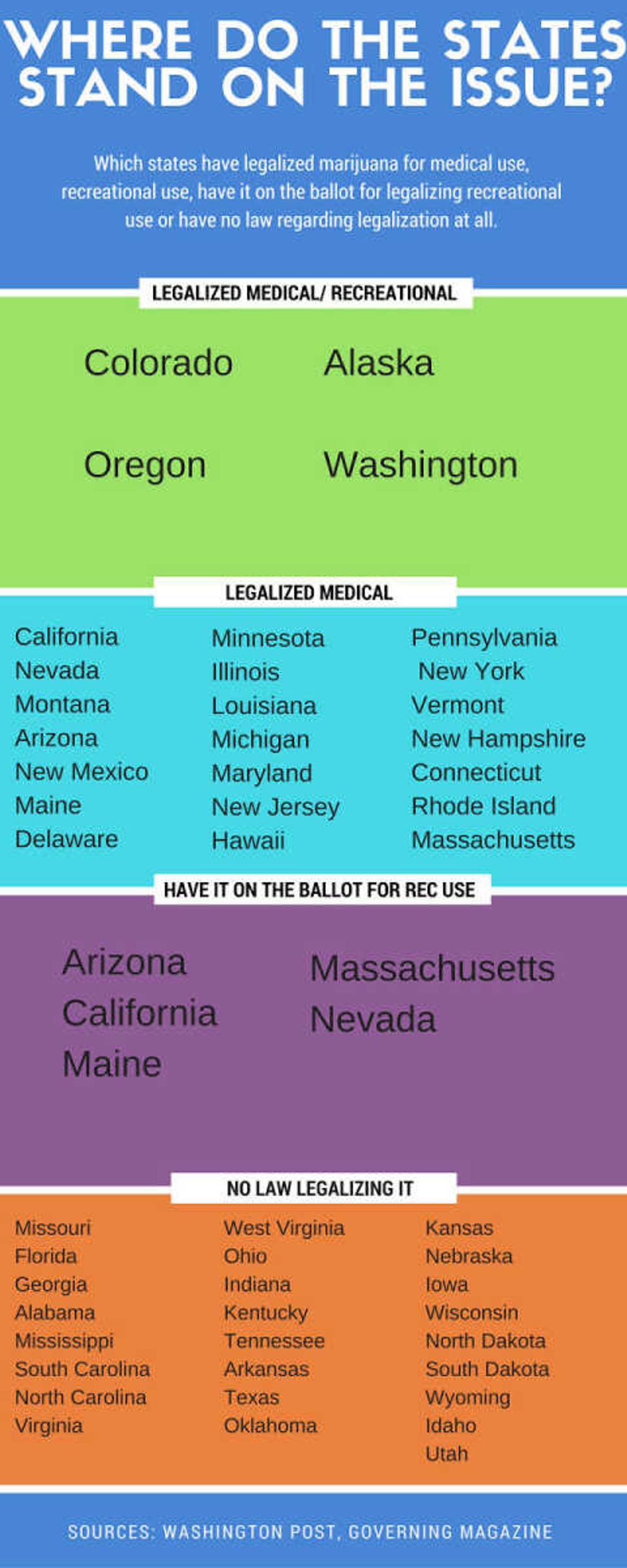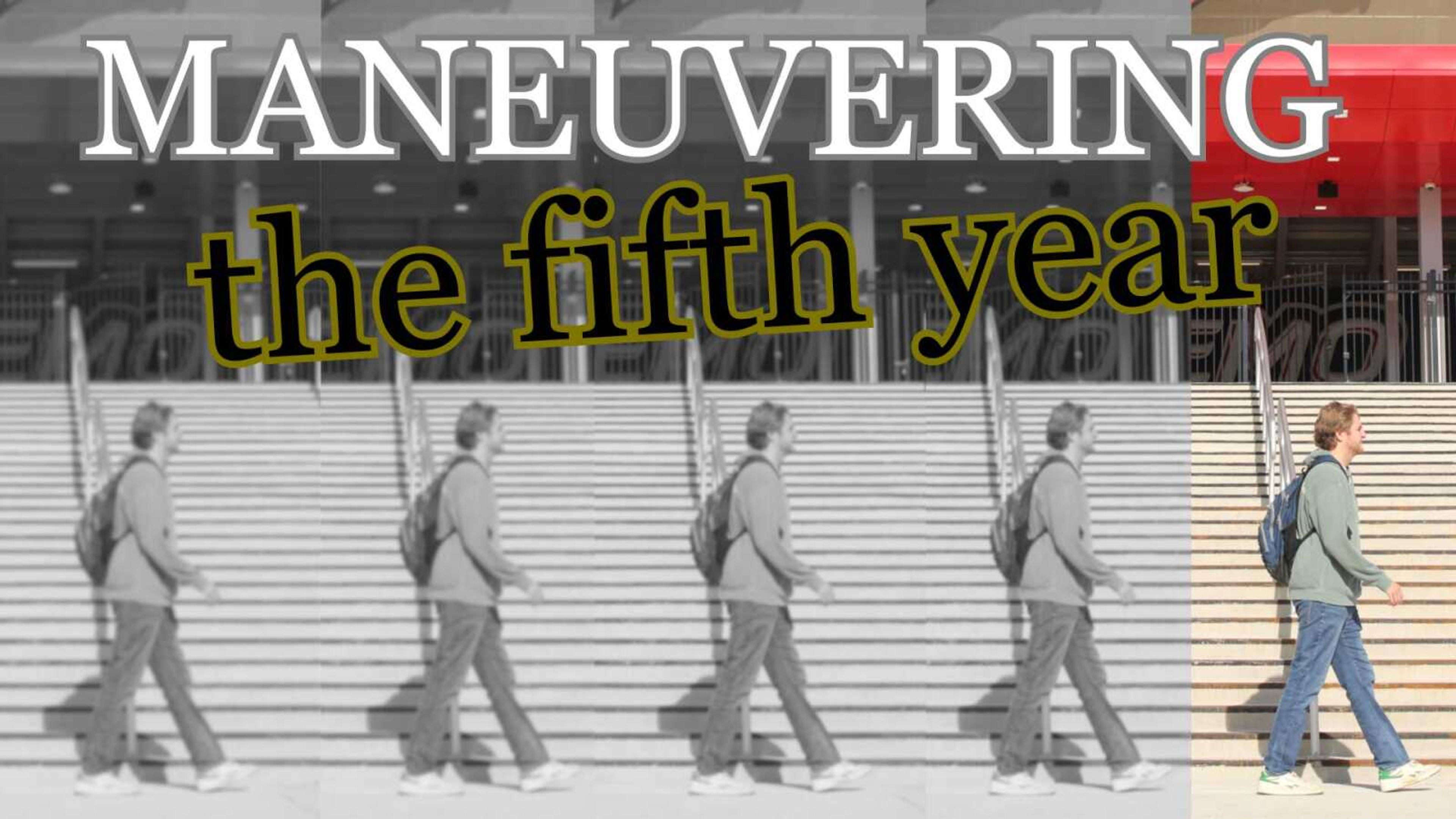Marijuana legalization in Missouri
Missourians will not be seeing the option to legalize marijuana on the upcoming ballot after failed attempts by activists groups such as Show-Me Cannabis and New Approach Missouri to get the initiative on the ballot via petition. The only ways for marijuana to be legalized on any level in Missouri is for either the Missouri legislation to pass a law, or for it to receive 157,788 signatures on a petition to then be voted on the ballot...
Missourians will not be seeing the option to legalize marijuana on the upcoming ballot after failed attempts by activists groups such as Show-Me Cannabis and New Approach Missouri to get the initiative on the ballot via petition.
The only ways for marijuana to be legalized on any level in Missouri is for either the Missouri legislation to pass a law, or for it to receive 157,788 signatures on a petition to then be voted on the ballot.
“I think the prospects in Missouri are not very likely, now, it’s not likely to come through the state legislature, I don’t think,” Dr. Rick Althaus, professor of political science said. “The other alternative is the initiative petition process. We saw at least two groups this year try to get enough signatures to get it on the ballot, they couldn’t do it.”
The states to already legalize marijuana recreationally, Oregon, Washington, Colorado and Alaska, tend to lean more libertarian or liberal, meaning they prefer less government regulation. Missouri, on the other hand, recently has leaned more conservative and make the state less likely to pass a law in favor in legalization.
“I’m not too sure that even if it were on the ballot that Missouri voters would be inclined to vote yes,” Althaus said. “Because while our voters, up until recent years, have been pretty well split between two parties, it is looking like we are trending a little more ‘R’, a little bit redder.”
One of the biggest points of contention surrounding marijuana is much of the unknown. Whether or not marijuana gets legalized in the future could hinge on the advancements of science.
“There’s also not necessarily a clear understanding if marijuana, for recreational use, does turn into a gateway drug,” Althaus said. “Again, if science were clearer that would not be the case, that could change some Americans’ views on it. But I think there’s a lot of anecdotal information out there and just average person on the street suspicion out there that the folks they knew in high school that were using [marijuana] then ended up doing other things that were worse.”
Further knowledge of marijuana for recreational use is not the only area that needs more research is the medical effect of marijuana. If marijuana gains more support as a means of medication, it could gain more traction with voters.
“That could drive that measure at the national level, if there were a series of peer-reviewed studies that definitely showed effectiveness of marijuana’s effectiveness in treating certain kinds of conditions,” Althaus said.
The legalization of marijuana is a trend that has been lead primarily by states, those that have legalized recreationally as well as those that have legalized marijuana recreationally, and 12 more states have decriminalized marijuana, meaning there is no arrest made, prison time or criminal record for first-time offenders. All of these states are technically violating federal law.
“It’s an interesting federalism issue too because it is still technically against federal law, and so these states that have legalized, in theory federal authorities could come in and do something but in a way of enforcing the law, but they seem to be backing off and not doing that, so I wonder if somewhere down the road the Supreme Court will be called upon to address the topic of federal role versus state role in regard to marijuana,” Althauser said.
Since it is illegal by federal law, action could be taken right now, but that would create a lot of complications within the states.
“I think a national government that wanted to insist on it could probably start to crack down but that would be really messy now because in some of these states there’s a whole marijuana industry and commerce and the states are making a ton of money from taxation and licenses and so forth, and so the [federal government] would be in essence taking away that source of income,” Althaus said.
Marijuana has proven to be a good source of income, as Colorado took in almost $70 million in 2015 from marijuana-based tax revenue.
Marijuana would not be the first moral-pressing issue to create revenue in Missouri. Gambling is legal in some form in 38 states, and has been an issue which was state-oriented rather than federal.
“There are plenty of states, Missouri included, that finally decided their longheld moral stance was not as important to them as their financial stance,” Althaus said.








